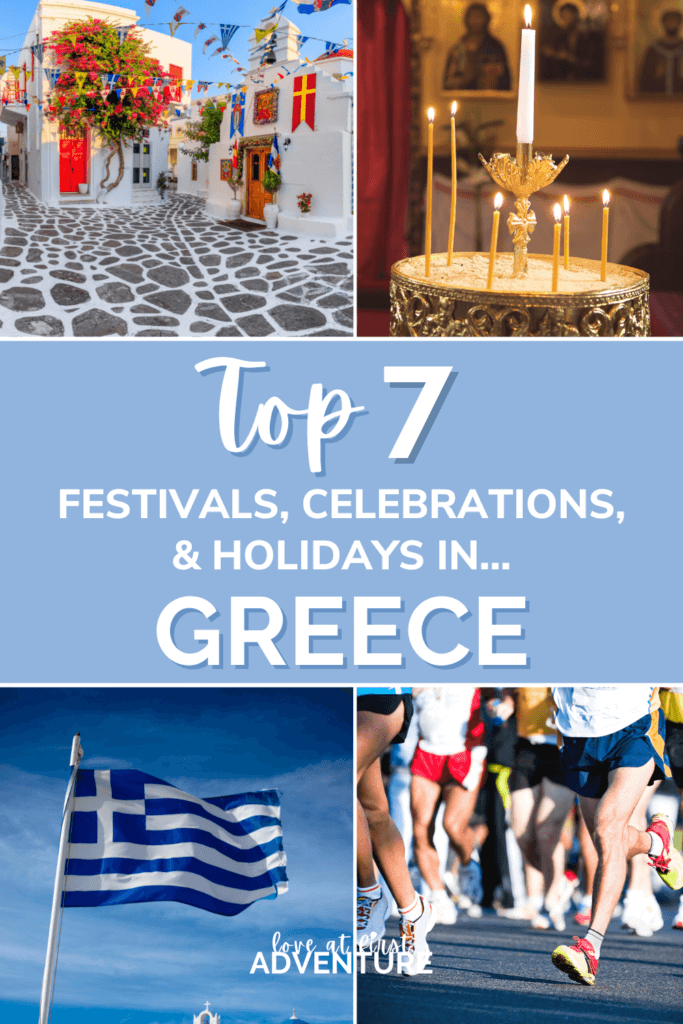7 Holidays & Festivals in Greece You Won’t Want to Miss
Although we all know movies are works of fiction, they’ve all taught us one thing right: Greece knows how to throw a good party!
Celebrations play a large role in Greek culture, and you could even say that Greece hosts some of the most famous festivals, celebrations, and holidays in Europe.
In reality, hardly a week goes by without some kind of event or festival happening somewhere in the country. While some Greek celebrations are religious and solemn, others are full of vibrancy.
No matter what, Greek festivals attract visitors from all over the world. I myself have personally enjoyed celebrating the Greek way when visiting Greece. Do you want to join the fun by planning a trip around a celebration in Greece? If so, check out this list of our top Greek festivals, celebrations, and holidays!
Top 7 Greek Celebrations
It’s hard to choose the best festivals and holidays in Greece, as there are so many. However, we have managed to narrow it down to 7 of our favorite Greece celebrations you don’t want to miss.
1. Epiphany (January 6)
Christians all over the world celebrate Epiphany. But, there’s some extra special pomp and circumstance associated with the holiday in Greece, which is also known as the Festival of Lights.
Several times on this Greek holiday, the Greek Orthodox Church performs the “Great Blessing of the Waters.” Traditionally, men and boys surround the priest as he throws a cross into the sea, or other body of water. They all dive in to search for the cross, and the lucky one who finds receives a special blessing from the priest.
As the last holiday of the Christmas season, Epiphany sends a message of sending a message of spiritual rejuvenation for the year ahead.
Keep in Mind: Most stores, restaurants, and ancient sites are closed on epiphany days in Greece.
2. Orthodox Easter (Spring)

Easter is the biggest and most celebrated holiday in the Greek Orthodox calendar.
In preparation for Lent, Greeks celebrate Carnival for three weeks. During this time, festivals, parades with floats, and masquerades fill the streets of Greece. Then, starting 40 days before Easter, Lent begins with Smoky Thursday. On this day, people grill any remaining meat before the traditional 40-day abstention from meat begins. Finally, they break the 40-day fast on Holy Saturday.
Additionally, Greeks participate in the red egg tradition in which they dye eggs red to symbolize the blood of Jesus. Then, the cracking of the eggs signifies the resurrection of Jesus from the dead and rising from the tomb.
Although quite symbolic and historical, today the red egg game is mainly just fun — whoever has an egg that remains intact at the end wins!
Keep in Mind: Most museums and ancient sites are closed on Easter Sunday and have reduced hours on Good Friday and Orthodox Holy Saturday. Most businesses will be closed or follow a Sunday schedule.
3. Labor Day (May 1)

Labor Day in Greece, also called Protomagia or May Day, is held on May 1st.
In honor of Protomagia, Greeks celebrate the awakening of nature after the long winter.
There are many festivals, and people flock to open green spaces to fly kites, picnic, and gather wildflowers for a flower wreath called, Stefania.
Happily, it’s also the first day of the swimming season for locals. In Corfu, you might find young men carrying a Cyprus tree with yellow daisies around town, singing exuberant songs about the coming of the season. Labor Day is also celebrated, as it is in the USA and many other countries, to commemorate the official sanction of the 8-hour work day.
Keep in Mind: Most museums, restaurants, places of business, and ancient sites are closed during Labor Day in Greece
4. Epidaurus Festival (Summer)
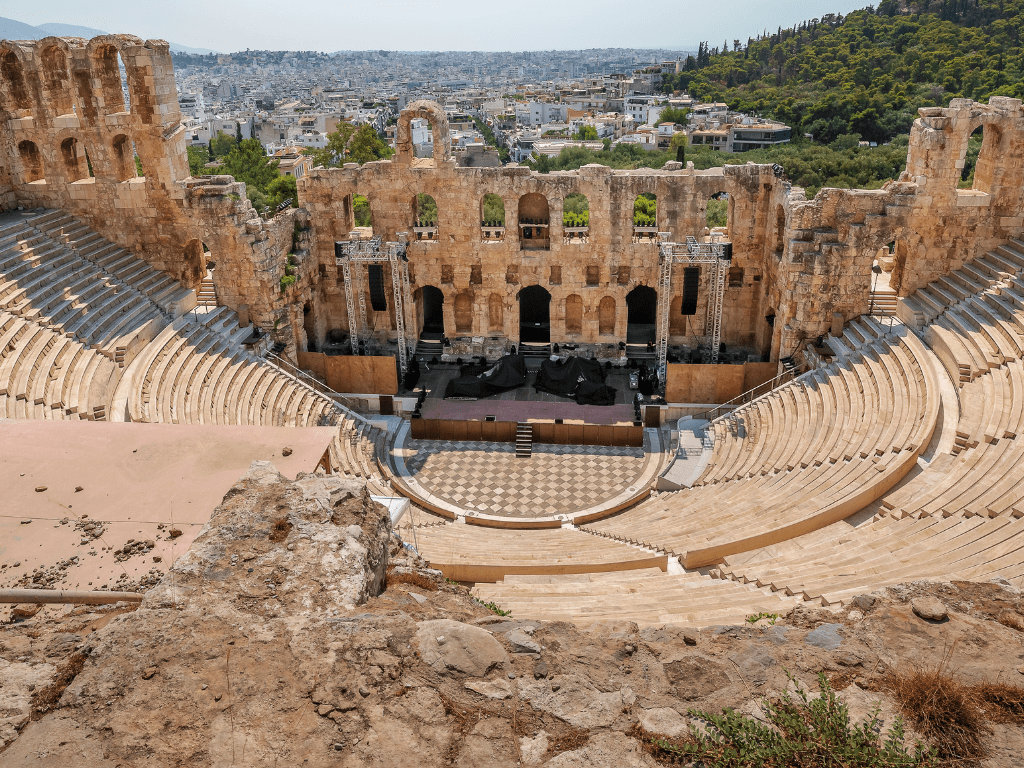
The Epidaurus Festival is an annual festival in Athens, Greece which takes place all summer long.
As one of the oldest, continuously running performing arts festivals in Europe, it includes leading musical, theatrical, drama, lectures, and other cultural events. You won’t want to miss the performances themselves and their epic backdrops—the Little Theater and Ancient Theater of Epidaurus and of course, the infamous Odeon of Herodes Atticus are all working performance spaces.
If you’re having trouble choosing, you can’t go wrong according to Ancient Greeks! They believed being a spectator alone can improve health. Therefore, each event and performance is just as important as the others.
Keep in Mind: As the Edpidaurus Festival lasts all summer, museums, most ancient sites, restaurants, and shops keep their normal hours (with some hours extended for summer tourism).
5. “Panagiria” – Saints’ Days (July)
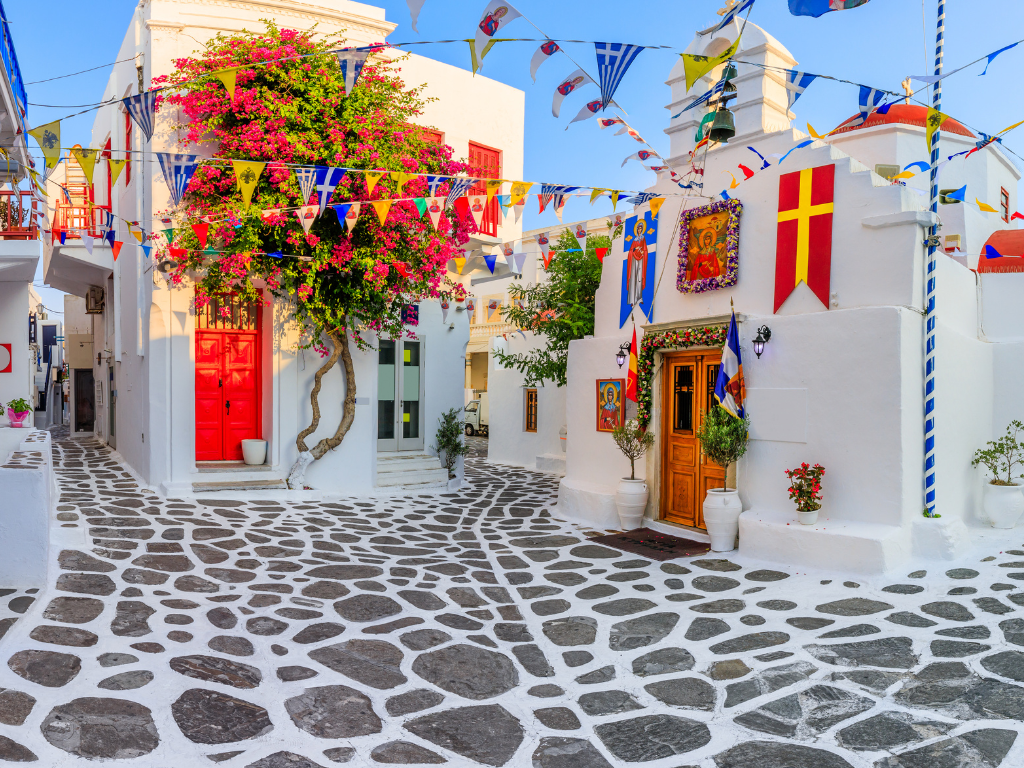
A Panigiri, or Saints’ Day, is a traditional festival celebrated in Greece — most wildly in the villages of Greek islands during the summer.
During the panigiri, townspeople celebrate their town’s main Saint.
You may catch some interesting cultural festivals and speciality markets along with food vendors, local wines, and good music. One thing that is particularly interesting is that everyone is out and about — both young and old — celebrating together.
Keep in Mind: As many Panagiria are during the month of July, (but may pop up other times as well), most museums and ancient sites keep their normal hours. In the smaller villages, more restaurants and stores may be closed.
6. Ohi Day (October 28)
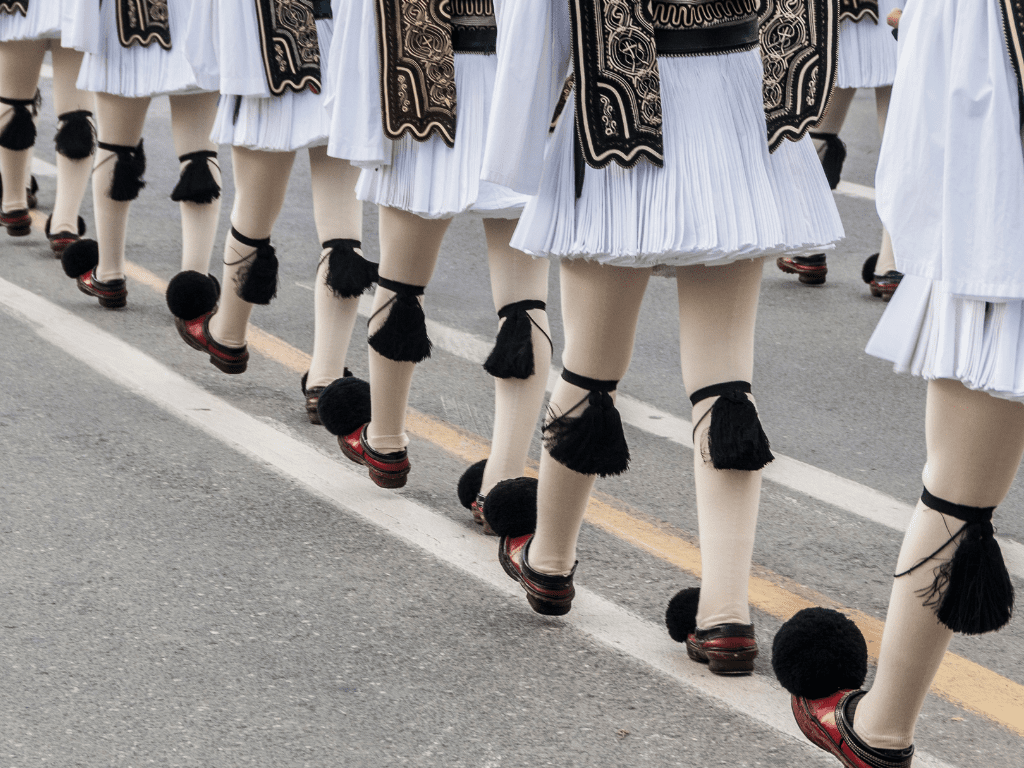
Ohi Day is celebrated in cities throughout Greece and Cyprus. A patriotic national holiday, it honors the heroic day in 1940 when the Prime Minister of Greece sent a resounding “no” (oxi in greece) in response to Mussolini’s request to allow Italian troops to occupy strategic Greek sites.
Unsurprisingly, the well-known colors of Greece, blue and white, are proudly on display. Expect Greek flags, military parades, and lots of people out celebrating in the parks and cafes day and evening.
Keep in Mind: In the United States, when you hear “holiday,” you think everything will be closed but Athens alone is PACKED. Many museums and archeological sites have free admission. As such, both locals and tourists will be out taking advantage. As far as restaurants and other shops, you’ll find many of the tourist spots are still open.
7. Athens Marathon (November)
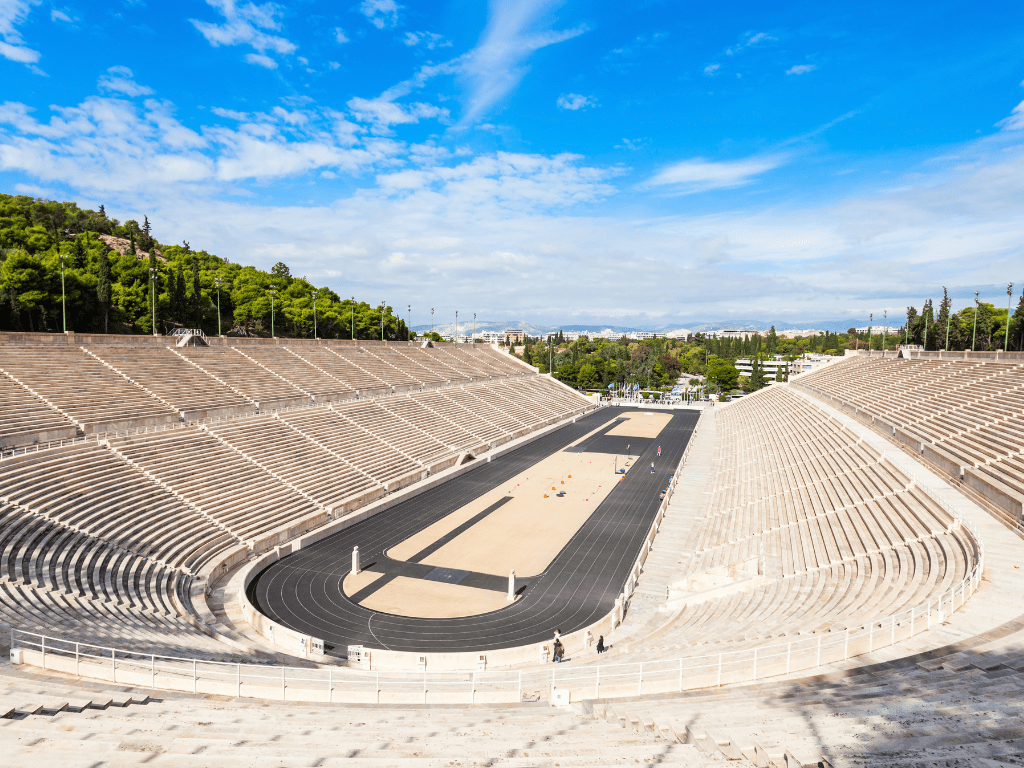
If you were ever going to cheer on some marathoners, Athens is the place to do it! That’s because the word “marathon” comes from the Greek legend of Philippides in 490 B.C.
According to legend, Philippides ran from a battlefield near Mathrathon, Greece to Athens to deliver an important message — the defeat of the Persians.
Spectators can witness runners make their way 26.2 miles around the city before ending their journey at the Panathenaic Stadium, which was built for the first modern Olympic Games.
Keep in Mind: A large part of the historic center is a pedestrian zone, and even more streets will be blocked off for the race. With close to 100,00 visitors in Athens for the marathon, buy tickets to museums and ancient sites well in advance.
Conclusion
No matter what time of year you decide to visit the magical land of Greece, there’s bound to be a festival taking place.
We hope you have enjoyed this guide to 7 of the best holidays and festivals in Greece, and that it’s inspired you to plan your next trip to Greece around one of these exciting experiences.
More posts on Greece
Planning a trip to Greece? Check out these articles…
Click image to pin to Pinterest!
